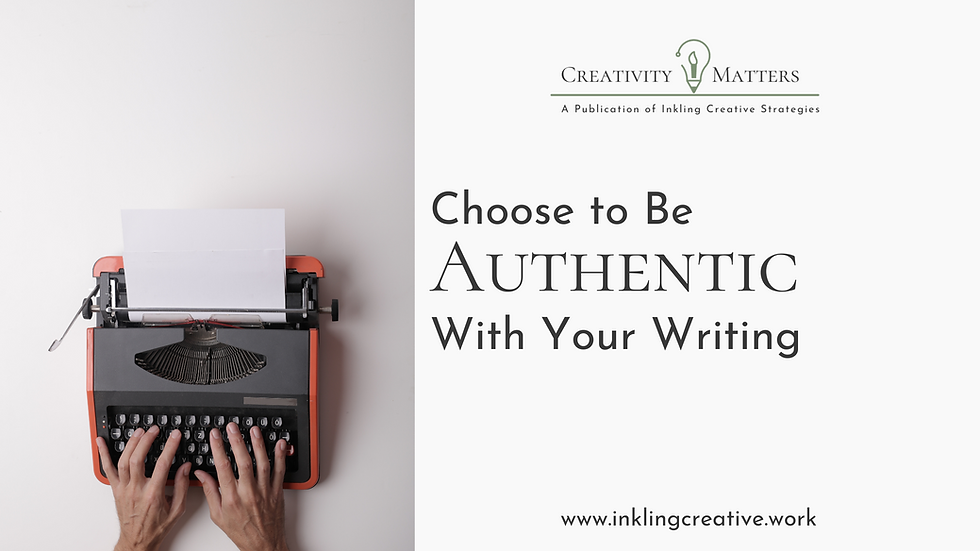What to Do When People Don't Like Your Writing
- Aug 10, 2022
- 4 min read

If you’re like a lot of writers out there, you dream of being able to share your work with an audience. Whether you read a poem at an open mic, submit a short story to a literary journal, send some sample chapters of a book to an agent, or publish a book independently, there are many ways to get your writing out there for readers to experience.
But sharing your writing entails a certain amount of vulnerability, and with vulnerability comes risk.
I have a hard truth to share with you today. It is a reality that all of us acknowledge on some level, but it is also one that we cast to the corners of our minds to avoid having to deal with its ramifications.
The truth is . . . sooner or later, somebody isn’t going to like your writing.
It’s just a fact of life. After all, have you liked every book you’ve ever read? Or maybe you didn’t outright hate the book but just had some problems with the execution.
This happens all the time, and if you’re going to share your writing with an audience, you need to understand that it’s normal, and it’s certainly not a reason to be scared to put your work out there.
With that in mind, here is a list of things you can do when people don’t like your writing.

Don’t Obsess Over It
I’ve shared this story in a previous blog, but the first time I had a story workshopped in my grad program was brutal. In retrospect, I’m not sure why I was so surprised. It was a master’s program. #whatlikeitshard
I went home and cried for like an hour.
But you know what? That thing Tom Hanks said about baseball applies here, too. Sort of.
It’s totally okay to cry, punch a pillow, go for a run, visit a rage room—whatever you have to do to get that negative stuff out of your system.
But ultimately, obsessing over people’s critical comments—especially if they aren’t backed up with things you can do to improve and are just meanspirited—will only deprive you of the energy you need to keep making art.
Don’t let other people’s comments about your writing suck your soul.
Try to Learn Something from It
Once you return from the rage room with (hopefully) a new perspective, think about whether there’s something in the comment that you can learn from.
If the person hated your main character, for example, try to objectively figure out why someone might react to them that way. Or maybe it has something to do with the narrative voice, the tone, or a lack of balance between the character’s positive and negative traits.
I had a story in college where people commented that my protagonist seemed stuck on herself, and they didn’t like her at all. I dismissed this comment because back then, I was the one who was stuck on myself, and I was kind of a jerk with a massive ego. But when I reread the project years later, I discovered they were right.
As a result, by not at least trying to view my work objectively, I missed out on making my story better.
Maybe it has something to do with the narrative voice, the tone, or a lack of balance between the character’s positive and negative traits.

I’m not saying you have to act like Pollyanna here and try to find something good in someone’s poorly worded feedback. The sad truth is that there might not be anything positive, and this person is just a troll.
But you will learn more from the experience and grow more as an artist if you’re willing to accept that sometimes, there is truth in what appears to be a negative statement.
See the Positive Side of It
Speaking of which . . . even those totally negative reactions can be innately positive.
Earlier this year, someone gave my book two stars on Amazon. Most of the people who reviewed the book up to that point had given it five stars, maybe four.
But two? That had never happened before. When I tell people this story, they make ouch faces or look at me with sympathy.
You know what, though? Truthfully, I was kind of thrilled about the two-star review.
If someone comes along and leaves you a bad review or rating, it doesn’t mean that your book is bad. It shows you’ve written something that is reaching a broad audience, including people who may not think it’s their cup of tea.
Welcome to having a published book.
I looked up The Great Gatsby on Amazon. Many literary experts consider it the greatest novel ever written (I agree with them).
It has PLENTY of one and two-star reviews. Readers say that the book “sucked,” that it “made them fall asleep,” and is “whiny.”
And that’s just in the present day. When the book was initially published, it didn’t fare much better. According to this article from The Atlantic, reviewers called it irrelevant and “painfully forced.”

I mean . . . there’s nothing magical about being F. Scott Fitzgerald. He’s a legend, but he was also just a regular dude. If he can take the heat, you can, too.
I think what it comes down to is that you have to examine your motives for writing. If you want to create something awesome that reflects your passions and creative abilities, go for it.
But if you’re writing because you want people to like you, you might want to go do something else.
Want some help figuring all this out?
I want to talk to you on Zoom about it.
Schedule a thirty-minute meeting with me to discuss your writing hang-ups and figure out what’s next for your work.
.png)



Comments